Hypoadrenia is a term used to describe a condition where the adrenal glands are not functioning properly. The adrenal glands are responsible for producing hormones that help the body cope with stress. Stress and, in particular, chronic stress can wreak havoc on the body’s adrenal glands and cause them to malfunction. The adrenals influence many different processes in the body, including metabolism, blood pressure, and the immune system. When they are not functioning properly, a person may experience a variety of symptoms, such as fatigue, low blood pressure, anxiety, depression, and immunodeficiency.
Hypoadrenia is often referred to as adrenal fatigue or burnout. The symptoms of adrenal fatigue are sometimes misdiagnosed because they are similar to other conditions, such as chronic fatigue syndrome, fibromyalgia, and depression. It is crucial to see a doctor if you are experiencing any of the symptoms of adrenal fatigue so that you can get the proper treatment. Keep reading to learn more about adrenal fatigue, its symptoms, and how it is treated.
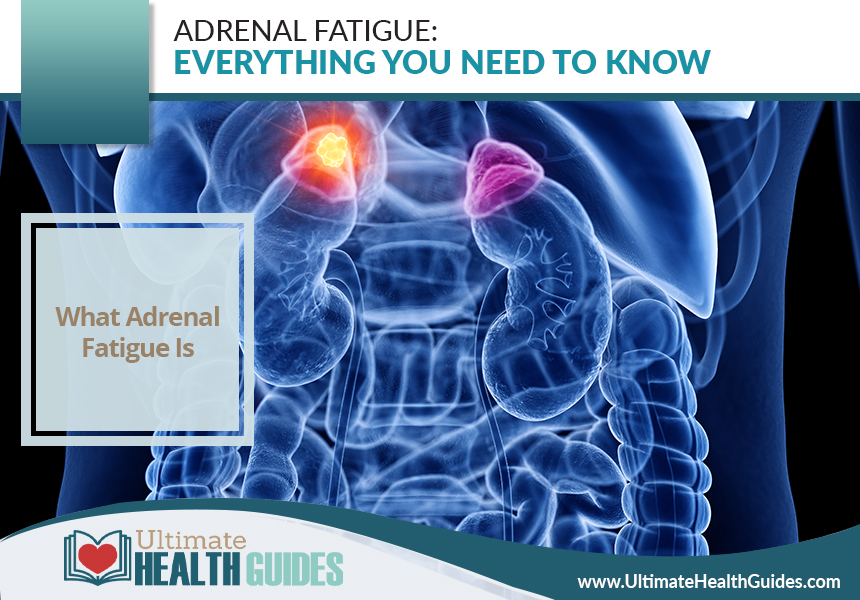
What Adrenal Fatigue Is
In 1998, James Wilson coined the term “adrenal fatigue” to describe a set of symptoms he hypothesized were caused by adrenal glands not working correctly. The adrenal glands are two small hormone-producing organs that sit on top of the kidneys and release hormones that help the body cope with stress. These hormones play an integral role in helping us manage stress. However, when we experience chronic stress, the adrenal glands can become overwhelmed and start to malfunction. This can lead to several symptoms, including fatigue, low blood pressure, anxiety, depression, and immunodeficiency.
The hypothalamus, pituitary gland, and pineal gland are all glands that work closely with the adrenal glands. The hypothalamus is a small part of the brain that controls the body’s hormone production. The pituitary gland is a small organ located at the base of the brain that releases hormones that control other organs in the body. The pineal gland is a small gland found in the center of the brain that releases melatonin, which helps regulate sleep cycles.
The hypothalamus is the control center for the stress response. When the body experiences stress, the hypothalamus signals the pituitary gland to release adrenocorticotropic hormone (ACTH). ACTH then signals the adrenal glands to release cortisol, a hormone that helps the body deal with stress. Cortisol increases blood sugar levels, suppresses the immune system, and helps the body deal with stress. Too much cortisol can lead to a variety of problems, such as weight gain, high blood pressure, anxiety, and depression.
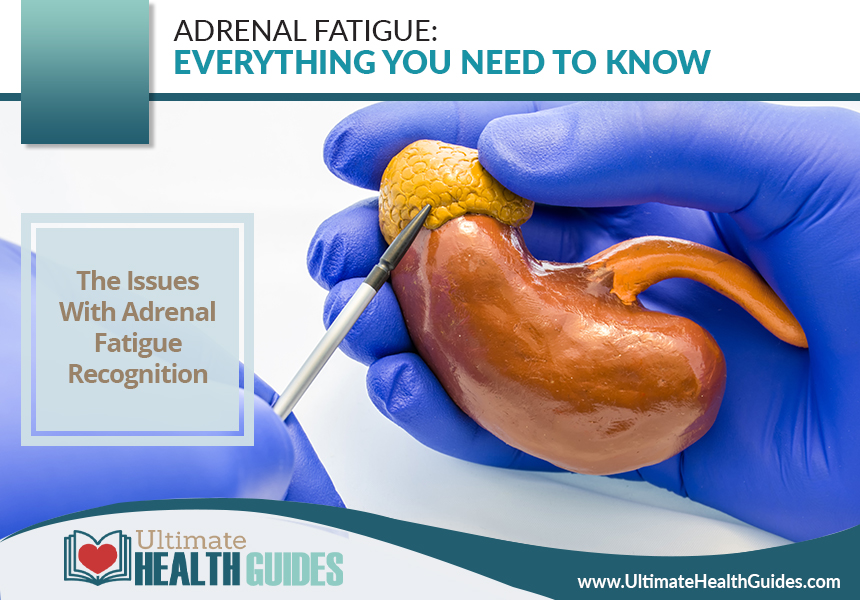
The Issues With Adrenal Fatigue Recognition
There is no single test that can diagnose adrenal fatigue. Instead, diagnosis is based on a combination of symptoms, medical history, and lab tests. Adrenal fatigue is often misdiagnosed as other conditions, such as chronic fatigue syndrome, fibromyalgia, and depression. This is because the symptoms of these conditions are similar. It is crucial to see a doctor if you are experiencing any of the symptoms of adrenal fatigue so that you can get the proper treatment.
There is no cure for adrenal fatigue, but there are treatments that can help improve symptoms. Treatment focuses on managing stress and supporting the adrenal glands. This may include lifestyle changes, such as getting enough sleep, eating a healthy diet, and exercising regularly. Stress-reducing techniques, such as meditation and yoga, may also be helpful. If lifestyle changes and stress-reduction techniques are not enough to improve symptoms, your doctor may prescribe medication to help support the adrenal glands.
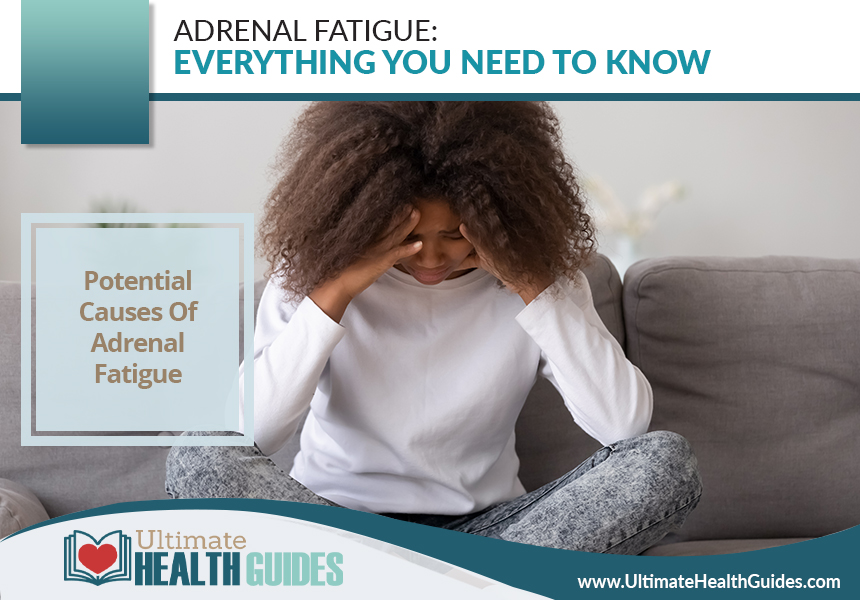
Potential Causes Of Adrenal Fatigue
There can be many causes of adrenal fatigue. This fact is often overlooked. Here are some causes.
Cause #1-Negative thought behavior and emotional trauma: It may seem far-fetched, but your thoughts and emotions can have a profound impact on your adrenal glands. If you’re constantly stressed or anxious, your adrenal glands will eventually become fatigued.
Cause #2-Poor diet: A diet that’s high in sugar and refined carbs can tax your adrenal glands and lead to fatigue. Similarly, a diet that’s lacking in nutrients can also lead to adrenal fatigue.
Cause #3-The sudden death of a loved one: One of the most common causes of adrenal fatigue is the sudden death of a loved one. Dealing with sudden funeral arrangements and the emotional trauma of a death can lead to adrenal fatigue.
Cause #4-Chronic illness: Illnesses such as cancer, heart disease, and diabetes can all lead to adrenal fatigue.
Cause #5-A messy divorce: Getting divorced can also be a very stressful event that can lead to adrenal fatigue. The stress of dividing assets, child custody battles, and dealing with an ex-spouse can all lead to adrenal fatigue.
Cause #6-Losing your job: Losing your job can be a very stressful event that can lead to adrenal fatigue. The stress of dealing with financial insecurity, looking for a new job, and the uncertainty of the future can all lead to adrenal fatigue.
Cause #7-Food sensitivities: If you’re sensitive to certain foods like wheat or dairy, you may be taxing your adrenal glands without even realizing it. Eliminating these foods from your diet can help improve adrenal fatigue.
Cause #8-Medications: Certain medications can lead to adrenal fatigue. Steroids, birth control pills, and certain antidepressants can all lead to adrenal fatigue.
Cause #9-Underlying health conditions: Some underlying health conditions can lead to adrenal fatigue. These include autoimmune diseases, hypothyroidism, and adrenal insufficiency. If you have one of these conditions, it’s vital to talk to your doctor about the potential risks of adrenal fatigue.
Cause #10-Infections: If you have an infection, your body will produce more adrenaline and cortisol in an attempt to fight the infection. Over time, this can lead to adrenal fatigue.
Cause #11-Rheumatoid arthritis: If you struggle with rheumatoid arthritis, your adrenal glands will eventually become fatigued.
Cause #12-Bad relationships: This can apply to violent domestic relationships, friendships, and even work relationships. If you’re in a bad relationship, it can lead to adrenal fatigue.
Cause #13-Caffeine or stimulant dependence: Having to double up on energy drinks or coffee just to get through the day is a sign that you might be overstimulating your adrenal glands. This can lead to adrenal fatigue.
Cause #14-Chronic stress: If you’re constantly stressed, it will eventually lead to adrenal fatigue. The stress of juggling work, family, and social obligations can take a toll on your adrenal glands.
Symptoms include the following below.
Symptom #1-Lightheadedness: If you’re feeling lightheaded or dizzy, it could be a sign of adrenal fatigue. When your adrenal glands are fatigued, they don’t produce enough cortisol. This can lead to low blood pressure and lightheadedness.
Symptom #2-Disturbances to sleep: If you’re having trouble falling asleep or staying asleep, it could be a sign of adrenal fatigue. When your adrenal glands are fatigued, they don’t produce enough cortisol. This can lead to sleep disturbances.
Symptom #3-Anxiety or depression: If you notice that you are having panic attacks, anxiety, or feeling down more than usual, it could be a sign of adrenal fatigue. When your adrenal glands are fatigued, they don’t produce enough cortisol. This can lead to anxiety and depression.
Symptom #4-Fatigue: If you’re feeling fatigued, it could be a sign of adrenal fatigue. When your adrenal glands are fatigued, they don’t produce enough cortisol. This can lead to fatigue.
Symptom #5-Weight gain: The reason why weight gain and adrenal fatigue are linked is that when your adrenal glands are fatigued, they don’t produce enough cortisol. This can lead to weight gain.
Symptom #6-Skin issues: Skin issues, like rashes, hives, or eczema, could be a sign of adrenal fatigue. Your skin becomes sensitive when your adrenal glands are fatigued.
Symptom #7-Depression: If your depression is accompanied by fatigue, lightheadedness, and sleep disturbances, it could be a sign of adrenal fatigue.
Symptom #8-Irritability: When you seem to have little patience for your toddler’s antics or your partner’s forgetfulness, it could be a sign of adrenal fatigue.
Symptom #9-Bone and muscle loss: Loss of muscle mass and bone density can be a sign of adrenal fatigue.
Symptom #10-Lowered immunity: If you find yourself getting sick more often, it could be a sign of adrenal fatigue.
Symptom #11-Hair loss: Hair loss can be a sign of adrenal fatigue.
Symptom #13-Digestive issues: If you’re having trouble digesting food or if you’re always constipated, it could be a sign of adrenal fatigue.
Symptom #14-Brain fog: Feeling like you can’t think straight or you’re in a mental fog could be a sign of adrenal fatigue.
Symptom #15-Lower libido: If you’re not interested in sex, it could be a sign of adrenal fatigue. When your adrenal glands are fatigued, they don’t produce enough cortisol. This can lead to low libido.
Symptom #16-Cravings for sweet and salty foods: If you find yourself craving sweets or salty foods, it could be a sign of adrenal fatigue. When your adrenal glands are fatigued, they don’t produce enough cortisol. This can lead to cravings for sweet and salty foods.
Symptom #17-Diabetes: If you can’t regulate your blood sugar levels, it could be a sign of adrenal fatigue.
Symptom #18-Hypoglycemia: If you have low blood sugar levels, it could be a sign of adrenal fatigue.
Symptom #19-High blood pressure: If your blood pressure is constantly high, it could be a sign of adrenal fatigue.
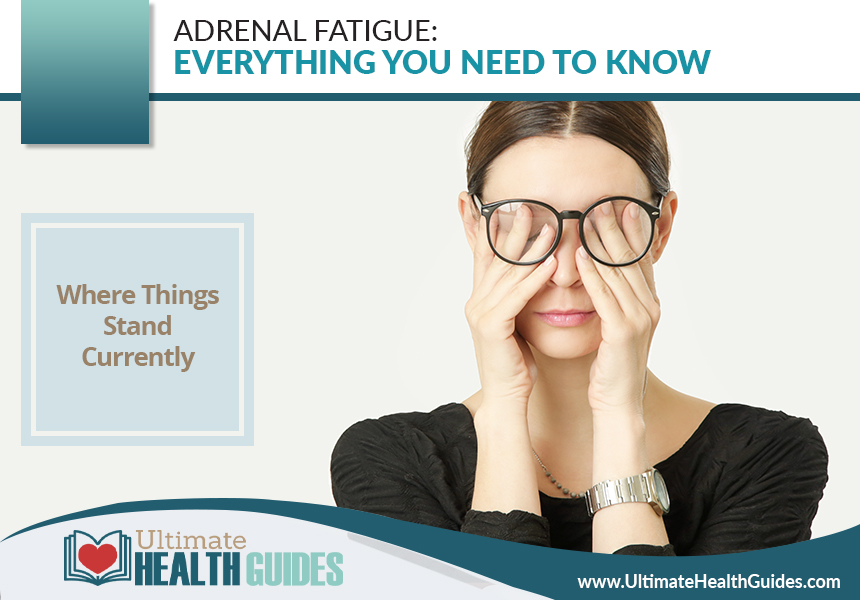
Where Things Stand Currently
Because there is no official diagnosis of adrenal fatigue, there is also no agreed-upon course of treatment. This can make finding help and support quite difficult, as many health professionals are not familiar with the condition. There are, however, a few general principles that are generally accepted when it comes to adrenal fatigue treatment.
Adrenal insufficiency is a condition in which the adrenal glands do not produce enough hormones. This can result in several symptoms. Some of the symptoms are listed below.
-Fatigue
-Weakness
-Weight loss
-Loss of appetite
-Nausea
-Vomiting
-Diarrhea
-Abdominal pain
-Low blood pressure
-Irregular heartbeat
-Depression
Adrenal function refers to how the adrenal glands work. This includes how well they produce hormones and how those hormones affect the body. Adrenal function can be affected by several factors, like the ones listed below.
-Aging
-Certain medical conditions
-Certain medications
-Stress
To treat adrenal insufficiency, your doctor will likely recommend synthetic hormone replacement therapy. This will help replace the hormones that your adrenal glands are not producing. In some cases, lifestyle changes may also be recommended. These can include stress-reducing techniques, such as yoga or meditation.
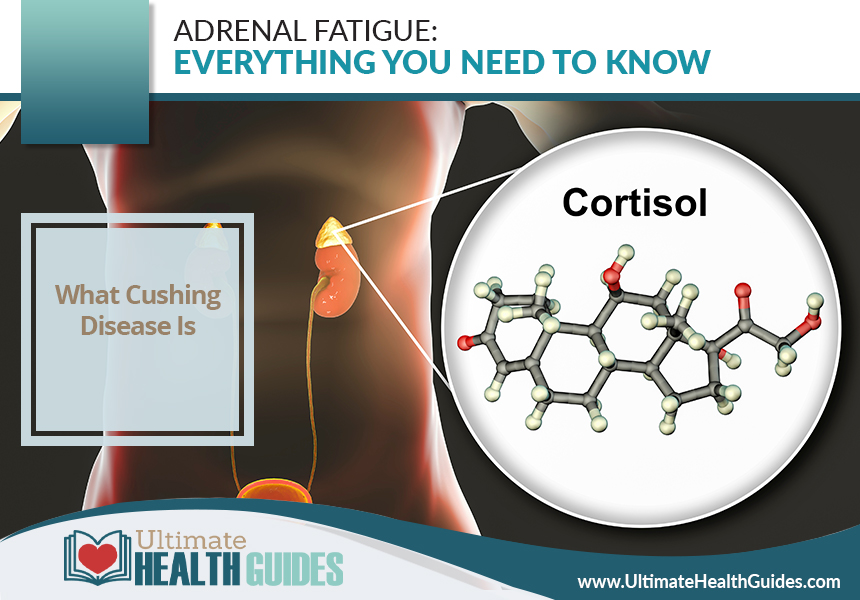
What Cushing Disease Is
Cushing disease is a rare disorder that occurs when the body produces too much of the hormone cortisol. Cortisol is produced by the adrenal glands and helps the body respond to stress. When there is too much cortisol, it can cause several health problems, like the ones listed below.
-Weight gain, especially around the midsection
-High blood pressure
-Sleep problems
-Diabetes
-Bone loss
-Mood changes
-Irregular periods
To diagnose Cushing’s disease, your doctor will likely order a blood test to measure cortisol levels. Treatment for Cushing’s disease depends on the cause of the excess cortisol production. If it is caused by a tumor on the pituitary gland, surgery may be needed to remove the tumor. If there is no tumor, medications may be used to lower cortisol levels.
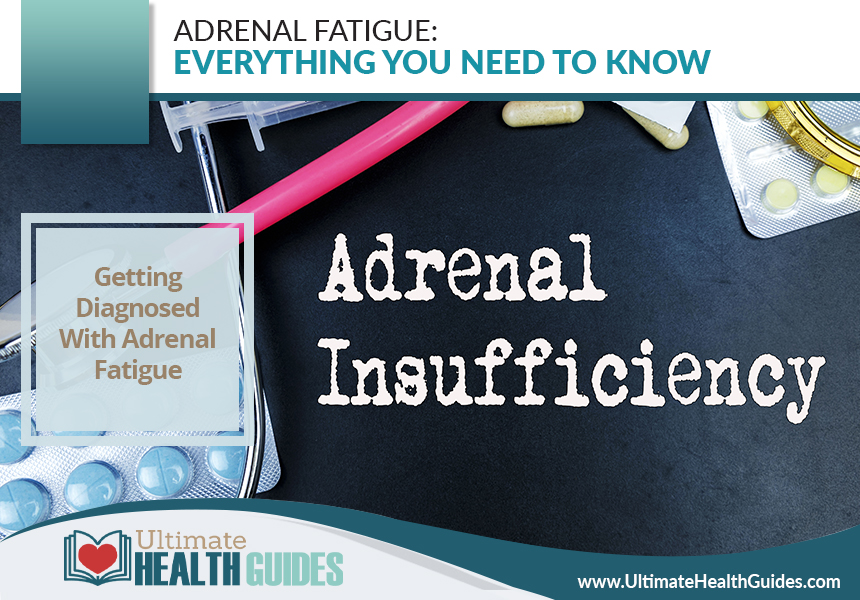
Getting Diagnosed With Adrenal Fatigue
The main reason adrenal fatigue is so hard to diagnose is that people go for long periods dealing with the symptoms before they seek help. This is because the symptoms are so common that they can be attributed to other causes, such as stress or a busy lifestyle. It is only when these symptoms begin to take a toll on a person’s life that they seek help.
No one test can diagnose adrenal fatigue. Instead, the diagnosis is made based on a combination of factors. Some of these factors are listed below.
-Medical history
-Symptoms
-Stress levels
-Sleep patterns
The testing for adrenal fatigue can be daunting because it is often necessary to rule out other conditions that have similar symptoms. This can include blood tests, urine tests, and even imaging tests, such as CT scans or MRIs. There are some safe tests that you can perform at home that can give you an idea of whether or not you have adrenal fatigue. These tests are not diagnostic, but they can help point you in the right direction.
The first test is the cortisol awakening response test. This involves measuring your cortisol levels first thing in the morning and again 30 minutes after waking up. If your cortisol levels are low in the morning and high 30 minutes after waking, it could be a sign of adrenal fatigue.
The second test is the adrenal stress index test. This test measures your cortisol levels at four different times throughout the day. If your cortisol levels are consistently low, it could be a sign of adrenal fatigue.
The third test is the DHEA-sulfate test. This test measures your levels of DHEA, which is a hormone produced by the adrenal glands. If your DHEA levels are low, it could be a sign of adrenal fatigue.
Seek out a naturopathic doctor or a functional medicine doctor. This is the best way to get diagnosed with adrenal fatigue. These doctors are trained in testing for and treating adrenal fatigue.

Opting To Naturally Treat Your Adrenal Fatigue
How To Do The Adrenal Fatigue Diet
An adrenal fatigue diet is a holistic approach to treating adrenal fatigue. It focuses on eating whole, nutrient-dense foods and avoiding processed foods and chemicals. The diet also includes stress-reducing practices, such as meditation and yoga.
The first step in the adrenal fatigue diet is to eliminate all processed foods from your diet. This includes all boxed, packaged, and canned foods. It also includes all fast food and junk food. Instead, you should focus on eating whole, nutrient-dense foods.
The second step in the adrenal fatigue diet is to eat plenty of fresh fruits and vegetables. These foods are packed with vitamins, minerals, and antioxidants. These help the body heal.
The third step in the adrenal fatigue diet is to eat plenty of protein. Protein is essential for rebuilding the adrenal glands. Excellent sources of protein include chicken, fish, eggs, and beans.
The fourth step in the adrenal fatigue diet is to eat plenty of healthy fats. Healthy fats help balance hormones and reduce inflammation. Great sources of healthy fats include avocados, nuts, and seeds.
The fifth step in the adrenal fatigue diet is to drink plenty of water. Water helps flush out toxins and reduce inflammation. It is crucial to drink eight glasses of water per day. Here are foods to avoid.
-Processed foods
-Fast food
-Junk food
-Sugar
-Caffeine
-Alcohol
It is paramount that you eat a variety of foods to get all of the nutrients your body needs. Certain foods help treat adrenal fatigue. These foods can be eaten as part of a healthy diet or as snacks throughout the day. These include the items listed below.
-Fish: Fish is a great source of protein and omega-3 fatty acids, both of which are essential for adrenal health.
-Bone broth: Bone broth is a great source of protein and minerals, both of which are essential for adrenal health.
-Coconut oil: Coconut oil is a good source of healthy fats, which are essential for adrenal health.
-Avocados: Avocados are a great source of healthy fats, which are essential for adrenal health.
-Nuts: Nuts are an excellent source of healthy fats, which are essential for adrenal health.
-Seeds: Seeds are a good source of healthy fats, which are essential for adrenal health.
-Dark leafy greens: Dark leafy greens are an excellent source of vitamins and minerals, both of which are essential for adrenal health.
-Berries: Berries are a good source of antioxidants, which are vital for adrenal health.
-Water: Water is essential for flushing out toxins and reducing inflammation.
The adrenal fatigue diet is not a fad. It’s based on the principle of eating whole, natural foods to heal your body from the inside out. The diet also includes stress-reducing practices, such as meditation and yoga, to help you live a more balanced life.
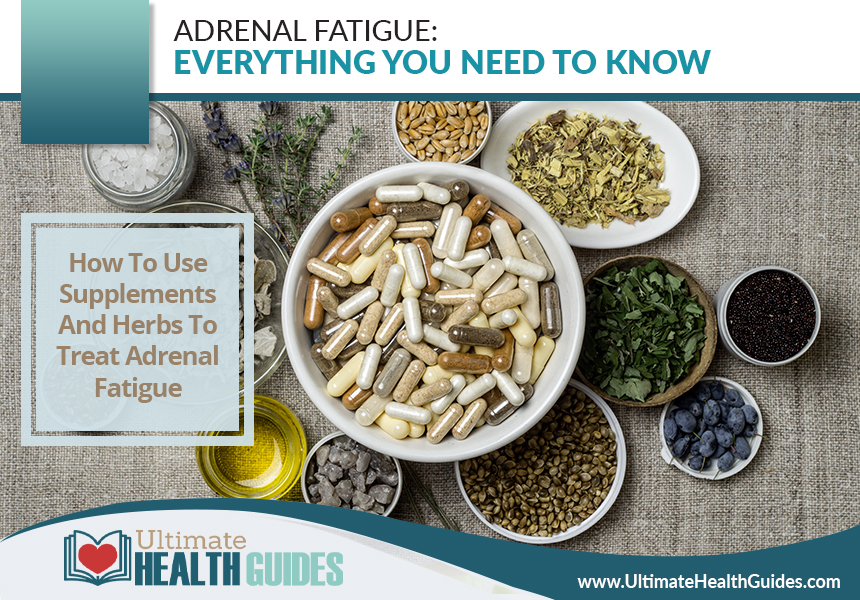
How To Use Supplements And Herbs To Treat Adrenal Fatigue
Several supplements and herbs can help treat adrenal fatigue. Here are some of these supplements. Use them.
Licorice root: Licorice root is a herb that has been used for centuries to treat adrenal fatigue. It helps balance cortisol levels and reduces stress.
Ashwagandha: Ashwagandha is an herb that has been used for centuries to treat adrenal fatigue. It helps reduce stress, improve sleep, and boost energy levels.
Rhodiola: Rhodiola is an herb that has been used for centuries to treat adrenal fatigue. It helps reduce stress, improve sleep, and boost energy levels.
B vitamins: B vitamins are vital for adrenal health. They help balance hormones and reduce stress.
Vitamin C: Vitamin C is an antioxidant that helps reduce stress and boost the immune system.
Magnesium: Magnesium is a mineral that helps reduce stress and improve sleep.
Lavender oil: Lavender oil is an essential oil that helps reduce stress and promote relaxation. It can be used in a diffuser, added to bath water, or applied topically.
Chamomile tea: Chamomile tea is a herbal tea that helps reduce stress and promote relaxation.
Supplements and herbs can be taken in pill form or as tea. Talk to your doctor before taking any supplements or herbs. It is crucial to do this, as they can interact with medications.
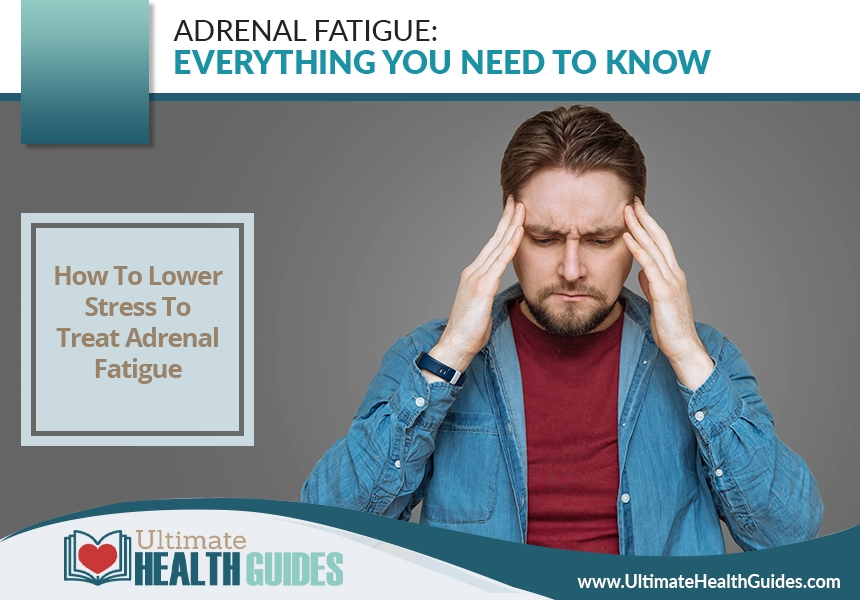
How To Lower Stress To Treat Adrenal Fatigue
Finding ways to lower stress is a vital part of treating adrenal fatigue. Stress can worsen symptoms and lead to a relapse. Here are some stress-reducing techniques.
-Meditation
-Yoga
-Deep breathing
-Exercise
-Spending time in nature
-Getting a massage
-Listening to music
-Spending time with friends and family
Adrenal fatigue is a condition that should not be taken lightly. Symptoms can worsen over time and lead to other health problems. With the proper treatment, adrenal fatigue can be managed, and symptoms can be reduced.
Another less-mentioned way to help lower your stress is by learning positive self-talk and building self-esteem. This can be done by attending therapy, writing in a journal, or listening to motivational speeches. Anything that helps build you up as an individual will help lower stress levels because you will feel more capable of handling any situation that comes your way.
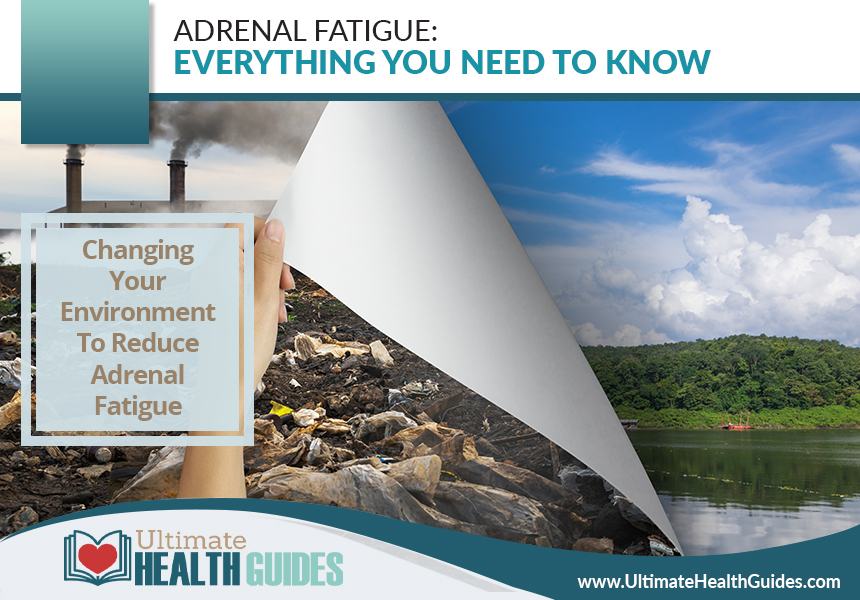
Changing Your Environment To Reduce Adrenal Fatigue
If you are constantly exposed to stressful situations, it can make adrenal fatigue worse. It is paramount that you find ways to reduce your stressors. This may include quitting a job that is too demanding, moving to a less stressful environment, and getting rid of toxic relationships. Making these changes can be difficult, but they may be necessary to reduce your stress levels and improve your adrenal health.
Many times, the first thing to do is take action in your own life and make changes that will reduce stress. This may be as simple as taking a break from social media, or it could be something more drastic, like changing jobs. It is necessary to assess your own life and see what changes can be made to reduce the amount of stress you are under.
In addition to making changes in your own life, it is also paramount that you find ways to relax and de-stress. This can be done by participating in activities that make you happy, such as listening to music and spending time with friends and family. It is important to find what works for you and make relaxation a priority.
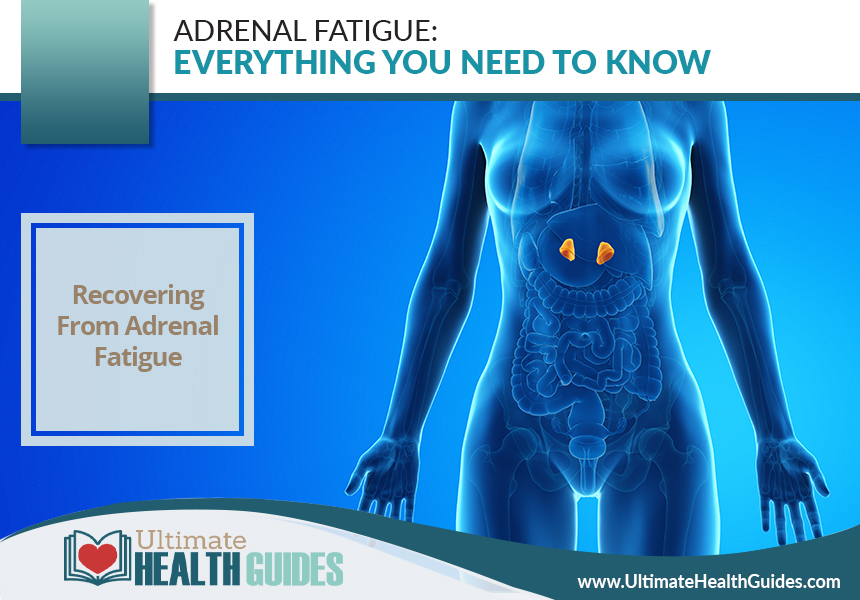
Recovering From Adrenal Fatigue
Recovery time from adrenal fatigue can vary from person to person. It is paramount for you to get plenty of rest during this time. It is also important to eat a healthy diet and avoid caffeine and alcohol. A good timeline is listed below.
-The first few weeks: Focus on getting plenty of rest. Avoid anything that could further stress the body, such as caffeine, alcohol, and processed foods.
-Weeks 3-8: Start to slowly add in light exercise and healthy foods. Avoid anything that could cause a relapse, such as strenuous exercise, work stress, or emotional trauma.
-After eight weeks: If you are feeling better, you can start to slowly add back in more strenuous activity and exposure to stressors. It is important to listen to your body and not push yourself too hard.
It is important to note that adrenal fatigue is a chronic condition that can take months or even years to recover from. It is important to be patient. It is also vital to listen to your body during the recovery process.
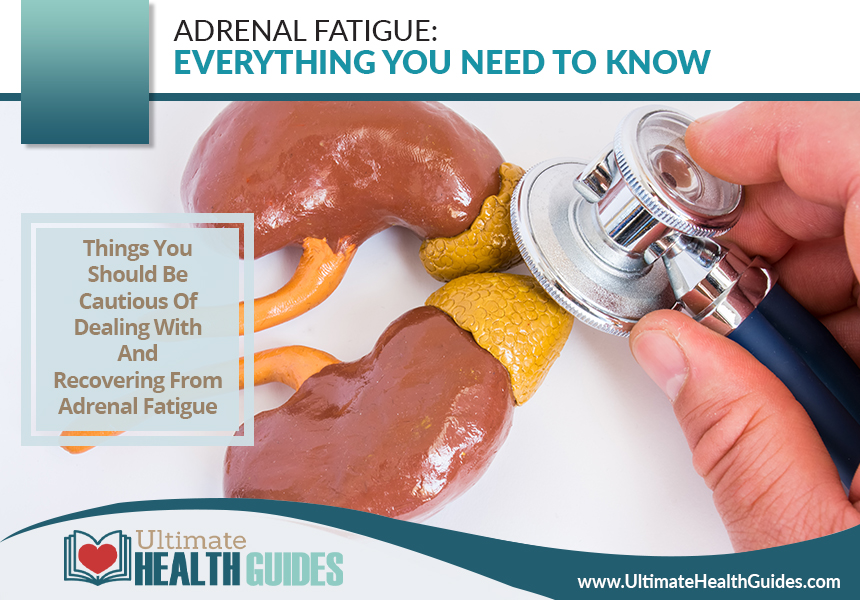
Things You Should Be Cautious Of Dealing With And Recovering From Adrenal Fatigue
Be cautious with supplements. Many supplements can make adrenal fatigue worse. It is necessary to talk to a doctor before taking any supplements, as they may interact with other medications you are taking or have adverse side effects. Be cautious with alcohol and caffeine. Both of these substances can worsen adrenal fatigue and should be avoided during the recovery process.
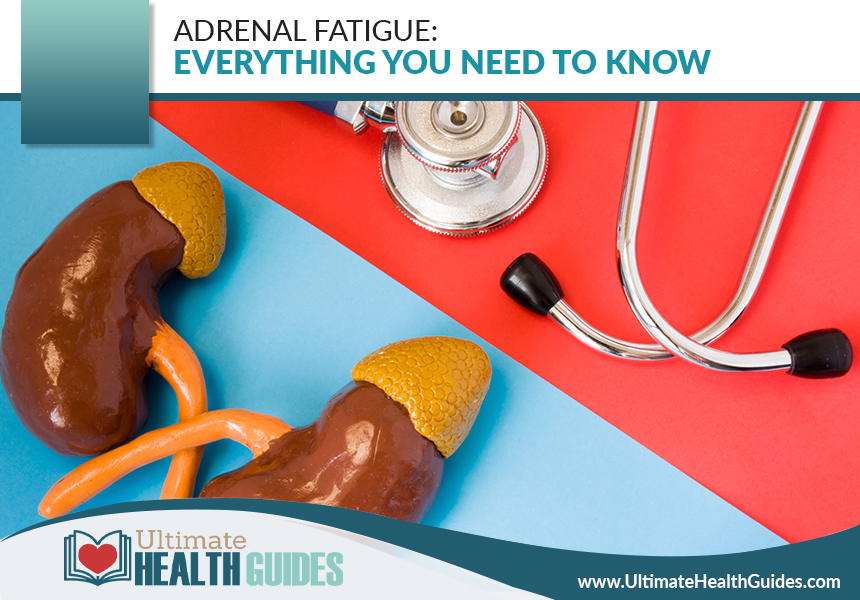
Don’t give up hope. It can take a long time to recover from adrenal fatigue, sometimes even years. Remember to be patient and sensitive to your body’s needs during this difficult period. Adrenal fatigue is something you don’t have to live with forever. With proper care and treatment, you can overcome this condition and live a healthy, stress-free life.
You may be experiencing the symptoms of adrenal fatigue if you think that your body acts differently than it used to, have trouble waking up in the mornings, or feel more tired after work. You can try taking a combination of remedies we talked about today. These can help balance out all these issues.














